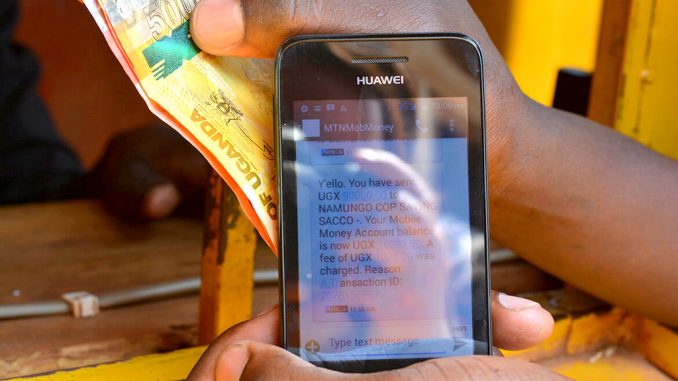By George Aine
The controversial mobile money tax returns to parliament on Tuesday for a fresh vote after a similar undertaking flopped last week.
The tax proposal presented in the Excise Duty Amendment Bill (2018) No. 2 seeks to reduce the current one percent levy on all mobile money transactions to at least 0.5 percent in line with President Museveni’s directive in July.
If passed into law, the government intends to collect Shs115 billion to fund part of its budget, similar to the same amount targeted with one percent.
However, the Bill has since attracted wide protest from a huge section of MPs who have cited discrimination, lack of equity and lack of clarity of collection mechanism.
Must read: UCC warns of new mobile money scam, inside job cited
The bill stands a test on Pro-people MPs on one side and pro-government lawmakers on the other.
When it was presented last week on Thursday the mood in the House was clearly charged with a majority of those in the chambers ready to throw the tax out in its entirety.
The situation was saved by Ms. Betty Amongi (UPC Oyam) who cited technicalities, premised on the lack of the requisite quorum for the vote to be taken.
The proponents of the bill also countered the urge by demoblising their colleagues, leaving the presiding Speaker Mr. Jacob Oulanyah cursing.
“Whether we defer this matter by a year or two years, the results are likely to be the same; whether we postpone by one day or one week, the same results shall suffice,” said Oulanyah.
The MPs opposed to the bill contend that there is no law to regulate the use of Mobile Money; mobile money services are already faced with huge transaction fees and that the sector risks causing a surge in unemployment levels in the country once an unpopular tax is introduced.
Some voices supporting the tax mainly comprised of MPs from the ruling party premise their support on the need to generate more revenue to support the budget whose priorities are already committed.
Mr. David Bahati, the Minister of State for Planning also argues that the tax is aimed at lowering Uganda’s foreign debt burden. To cover this debt, the government wants to capture majority of the unbanked population in the informal sector.
“We have a number of people in the informal sector who are largely using mobile money and this tax will enable us raise the required revenue,” said Bahati.
By Monday evening, legislators from the ruling Party had been summoned for a caucus meeting at State House Entebbe for a common ground before Tuesday’s debate.
Related:
A step-by-step guide to paying social media (OTT) tax in Uganda
Uganda has the most expensive internet in East Africa – Report
Tough rules await Ugandan telcos as cabinet approves Broadband Policy

